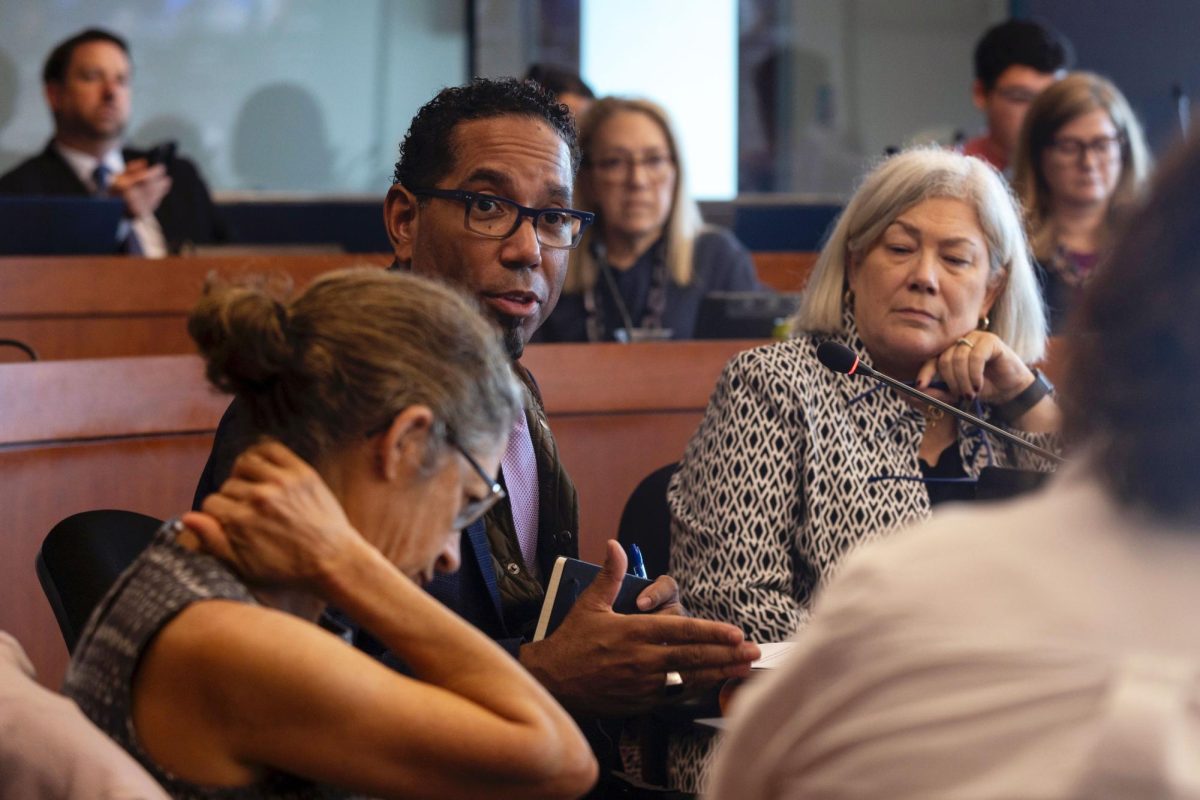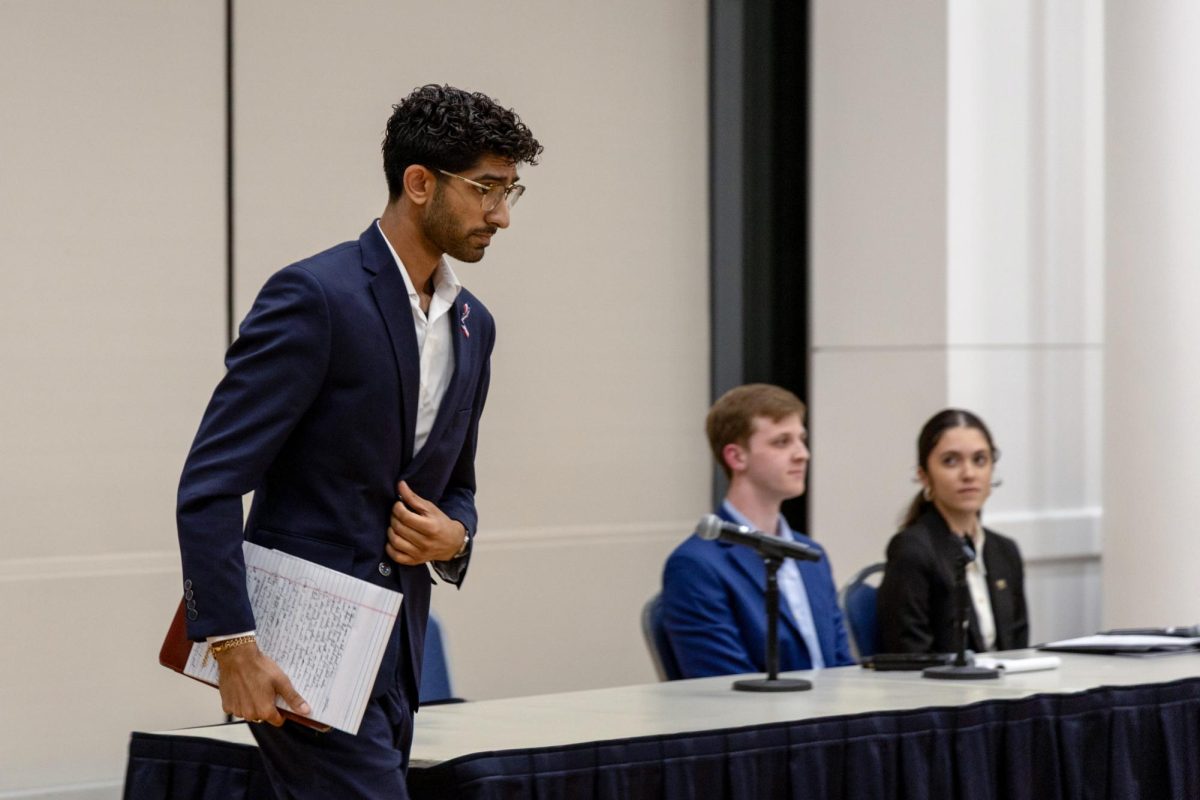Members of a University-wide diversity review team said the Office of the Provost’s diversity, equity and inclusion plan released earlier this month after a yearlong delay excluded several recommendations from faculty.
The plan comes nearly three years after a Diversity Program Review Team began assessing GW’s diversity climate in 2022, a process that included using results from a survey conducted with students, faculty and staff that year to develop a set of final recommendations to improve diversity at GW. Professors within the review team’s faculty subgroup said the final plan — which comes after officials submitted a draft report of the team’s recommendations to an external review team months later than initially promised — is generic and leaves out suggestions that faculty outlined in the plan’s development.
“I understand that you want to keep it succinct, and I understand that you can’t address everything that came out of every subcommittee, but it’s so general that it almost reads like you could’ve written it without all of that analysis and input,” Jennifer Brinkerhoff, a member of the faculty subgroup, said at a Faculty Senate meeting earlier this month.
Provost Chris Bracey first announced that the provost’s office would conduct a yearlong review to improve campus diversity in August 2021. In February 2022, Bracey announced the creation of the Diversity Program Review Team, a group of 26 faculty, students and administrators, who that spring conducted a diversity climate survey for faculty, staff and students.
Officials in March 2023 held community forums to share survey findings, which revealed that half of survey respondents experienced a negative experience on campus, with LGBTQ+ respondents experiencing the most negative identity-based treatment. In April 2023, the faculty subgroup of the review team submitted their draft report to officials, who compiled a comprehensive report to include plans from every subgroup.
Officials originally projected to submit the comprehensive report for external review in spring 2023 and receive the plan back for its final release in summer or fall 2023, according to web archives. But the provost’s office website now slots external review for fall 2023 and report submission for spring 2024, months later than originally planned. Officials changed the website’s timeline as early as Feb. 27, 2023, according to web archives but did not formally announce the delays.
Bracey declined to comment on the delayed timeline and why it took an additional year for officials to publish the plan. He also declined to say how the office plans to address concerns about recommendations that went unaddressed in the final plan.
He said the external team evaluated the review team’s report in fall 2023 and that the “feedback” provided by the external team was “thoughtfully incorporated” into the recommendations listed in the final action plan.
“We look forward to continuing to work with the community and provide any necessary updates as we implement the diversity, equity and inclusion efforts outlined in the action plan,” Bracey said in an email.
But faculty said the released action plan did not provide metrics to track progress of diversifying GW, like documentation for rejected diversity hiring proposals and data on hiring underrepresented faculty. Members of the review team reported uncertainty over why the University has taken longer than promised to release the report and if the provost’s office will address excluded faculty recommendations.
Shaista Khilji, the chair of the Faculty Senate’s Appointment, Salary and Promotion Policy DEI Subcommittee and a member of the faculty subgroup, said the review team had been “pushing” administration to release the report since early 2024. The subcommittee emailed Bracey in March to ask about the report’s status and were told administration would meet with them and release the report “soon,” but the meeting never happened, she said.
Khilji said there is a general level of disappointment among faculty on the final report and its delayed timeline because “so much” has changed across the nation in the past two years, like the Supreme Court ruling against affirmative action in August 2023, the removal of DEI offices at universities in June and tensions on college campuses from pro-Palestinian protests.
“If you survey the faculty today, their responses are likely to be different from those from two years ago, when the DEI survey was conducted at GW,” Khilji said in an email.
Khilji said the draft recommendations submitted by the faculty subgroup used multiple data sources that captured “specific gaps” contributing to low faculty morale and a lack of diversity, like climate surveys from 2013, 2019 and 2022, annual Core Indicators reports from 2022 and 2023 and the Faculty Senate’s ASPP DEI subcommittee report from 2020-21.
The recommendations advised the University to improve its policies and procedures for promoting DEI, like hiring, promotion and transparency around diversity issues and training of students, staff and faculty about diversity issues.
Nine Black faculty were promoted from assistant to associate professor between 2016 and 2020, and of the 316 faculty hired during that period, 9 percent were Black, with fewer than 1 percent identifying as Native American, according to the 2020-21 subcommittee report.
Khilji said the review team was “assured” by officials that the final report from the Provost’s office would include recommendations from the team. But she said the report only “passingly” mentions recommendations from faculty like improving campus climate, affinity groups and providing more resources for DEI.
The action plan states that the University will “encourage” departments to draft faculty position descriptions to attract diverse candidates but does not provide specific examples of how departments should create these descriptions. The report states GW will periodically review its diversity plan and develop a strategy to use resources from the Office of Diversity, Equity and Community Engagement with a committee of “key stakeholders” but does not specify which groups it will consult.
Khilji said the plan does not demonstrate an understanding of the “essence” of the team’s recommendations.
“In other words, what are the root causes of low faculty morale (i.e. why do we need to improve the campus climate?) and what specific steps will be taken to address the root causes of various problems?” Khilji said.
Jennifer James, an associate professor of English and co-chair of the review team’s faculty subgroup, said the group made about 40 recommendations in the faculty report but that “virtually none” of the group’s key recommendations, like providing support for underrepresented faculty to achieve promotions, were recognized in the action plan.
James said the report includes one priority made by the subgroup — cluster hiring initiatives — but that the Provost’s office didn’t provide “measurable” metrics to track the initiatives.
“We are currently hiring underrepresented minority faculty disproportionately into untenured faculty roles as compared to white professors,” James said in an email. “We want the administration to assure the community that a hiring initiative will not further relegate minority faculty to less secure, less highly paid positions.”
The final report states that GW Institute for Racial, Ethnic, and Socioeconomic Equity, an institute researching worldwide disparities, will provide opportunities for “bringing together faculty” interested in diversity issues and “additional hiring around the study of racism and social justice,” adding that the provost’s office will consider the cluster hiring recommendation as part of the strategic framework development process this academic year.
In 2021, department chairs, primarily in the Columbian College of Arts & Sciences, requested that the University “cluster hire” underrepresented faculty, and in January 2022, CCAS officials authorized a dozen hiring searches for faculty from marginalized backgrounds.
The report states that GW acted on recommendations from the review team to provide more resources to the Multicultural Student Service Center like hiring new staff members, which Bracey announced in March, and created a Center for Religious and Spiritual Life, which officials announced in June. The MSSC hired a director and two staff members after months of leadership vacancies and complaints from students and former staff about continuous turnover.
Stephen Forssell, a professor of psychological and brain sciences and a member of the faculty subgroup, said the report’s note of funding three additional staff positions for the MSSC and support for the Interfaith Center are “wonderful” steps but that GW could “do better” in terms of support for academic programs.
“Curricula that provide training for future leaders in promoting and expanding diversity in a multitude of disciplines are also critically important,” Forssell said in an email.





